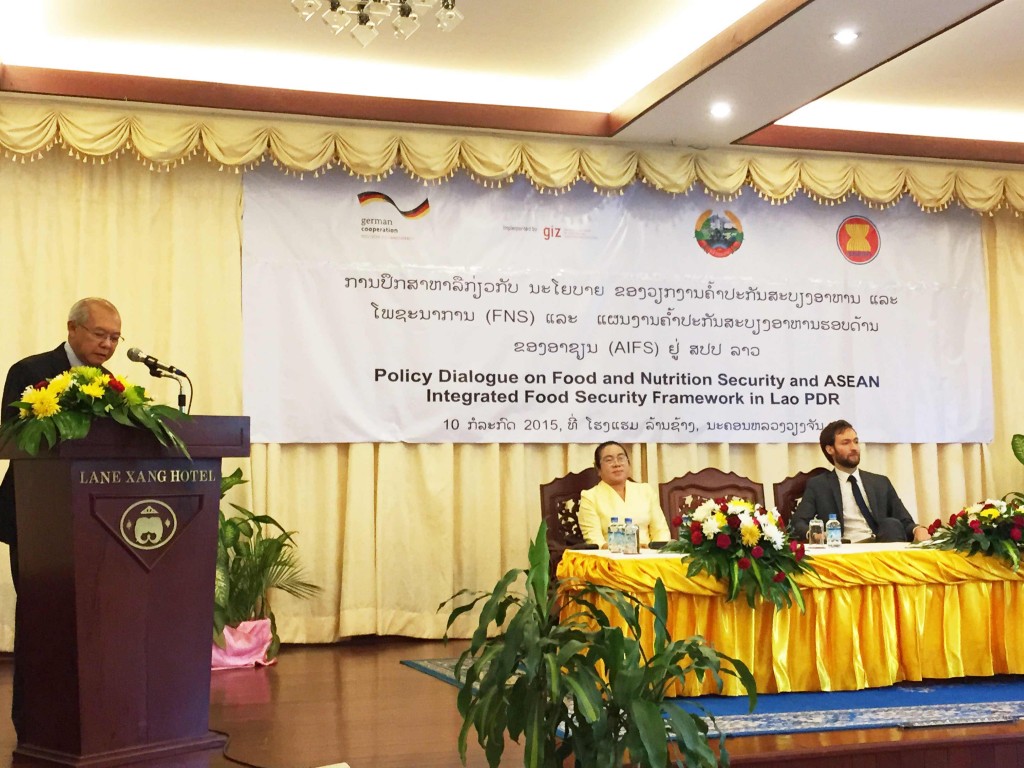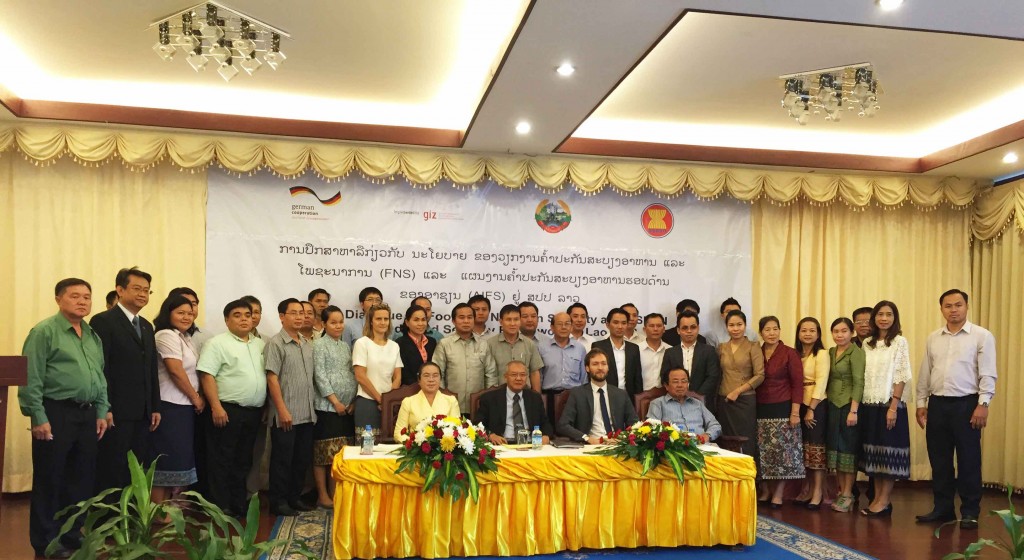The Department of Agriculture of the Ministry of Agriculture and Forestry has hosted a high level policy dialogue on food and nutrition security and the ASEAN Integrated Food Security (AIFS) Framework. The German Regional Cooperation project ASEAN Sustainable Agrifood Systems (SAS) supported the event. The project is part of the ASEAN-German Programme on Response to Climate Change in Agriculture and Forestry (GAP-CC) and is implemented by GIZ (Deutsche Gesellschaft fuer Internationale Zusammenarbeit GmbH).

The policy dialogue provided a platform to discuss and exchange information and agree on recommendations, concrete actions and coordination mechanism to implement national policies and strategies on food and nutrition security in Lao PDR in accordance with regional and global policy frameworks. The AIFS Framework, adopted by the ASEAN leaders in 2009, is thereby the key regional framework for Lao PDR. The event brought together stakeholders from the Lao Government, Development Partners, Civil Society Organisations and the private sector.

Mr. Xaypladeth Choulamany, Director General of the Department of Planning and Cooperation and leader of the Senior Official Meeting of the ASEAN Ministers on Agriculture and Forestry (SOM-AMAF) for Lao PDR, officially opened the policy dialogue. He highlighted the importance of food and nutrition security in Lao PDR through its commitment to eradicate extreme poverty and hunger by 2020. He emphasised the effort of the Lao Government to address food security at the regional level by engaging in the development process of the AIFS Framework. At the national level, he stated that Lao PDR had already implemented a row of policies and strategies relevant to food and nutrition security. Most prominently, the Agricultural Development Strategy to 2025 and Vision to 2030, the National Rice Production for National Food Security Strategy, Development Strategy of the Crop Sector 2025 and Vision 2030, and the National Nutrition Strategy and Plan of Action for 2010-2015.
In his welcoming remarks, GIZ Portfolio Manager Mr. Alexander Neubauer highlighted the German efforts to strengthen food and nutrition security through promotion of sustainable agrifood systems under the AIFS Framework. By this means, long-term food security and improved livelihoods of farmers could be reached. He highlighted that the policy dialogue was a crucial step that would lay a foundation for practical implementation of relevant policies and strategies in Lao PDR.
By definition of the World Food Summit in 1996, food security exists when all people, at all times, have physical and economic access to sufficient, safe and nutritious food that meets their dietary needs and food preferences for an active and healthy life. Agrifood systems are a long-term approach towards food security in the ASEAN region as it responds to the region’s special needs. Best practices to achieve sustainable agriculture, optimise production inputs and farming practices that integrate climate resilience are being identified and shared. Also environmental friendly approaches and the reduction of pesticide use come into play to produce safe and good quality agrifood products.
About the ASEAN Sustainable Agrifood Systems (SAS) project
Overall objective of the SAS project is to support ASEAN Member States to implement the ASEAN Integrated Food Security (AIFS) Framework and its Strategic Plan of Action on Food Security (SPA-FS). It does so by mainly focusing on the promotion of sustainable food production at the national level. Moreover, the project provides solutions for long-term food security in the region by developing regionally-coordinated policies and strategies for sustainable agriculture. This includes the promotion of cross-border value chains in concert with public decision-makers, agricultural enterprises as well as farmers and private associations.
